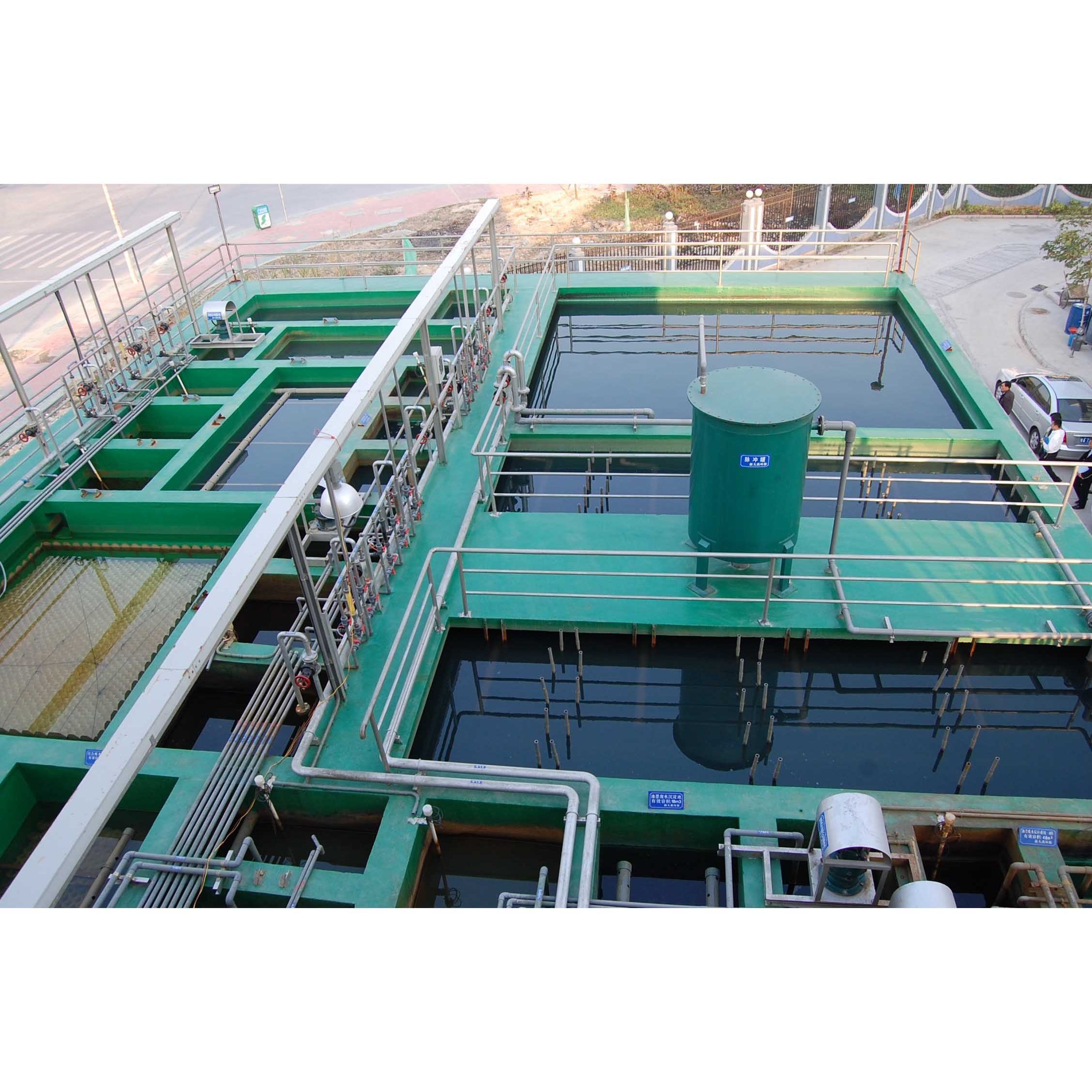Industrial Waste Water Treatment-- Effective Waste Management for Manufacturing Facilities
Industrial Waste Water Treatment-- Effective Waste Management for Manufacturing Facilities
Blog Article
Technologies and Developments in Industrial Waste Water Therapy Technologies
The landscape of industrial wastewater treatment is going through a transformative shift, driven by advancements that boost both performance and sustainability. As governing criteria evolve, the integration of AI and machine learning into wastewater management systems promises to ensure and simplify procedures conformity.
Introduction of Drainage Treatment Technologies
Wastewater treatment technologies encompass an array of approaches created to eliminate pollutants from industrial effluents prior to their launch into the environment. These technologies are critical for keeping environmental balance and guaranteeing compliance with ecological policies. The primary categories of wastewater therapy include physical, chemical, and biological approaches, each offering unique purposes based upon the nature of the pollutants present.

Biological therapy techniques utilize bacteria to weaken natural issue, making them specifically effective for organic-rich effluents. Methods like triggered sludge and biofilm activators harness the all-natural destruction capabilities of bacteria, causing substantial decreases in biochemical oxygen need (FIGURE)
Advanced Purification Techniques
Advanced filtration techniques represent an important advancement in the world of commercial wastewater therapy, boosting the performance of impurity elimination procedures. Industrial Waste Water Treatment. These approaches incorporate a series of modern technologies, consisting of microfiltration, ultrafiltration, nanofiltration, and turn around osmosis, which give consecutive obstacles for different bit dimensions and chemical frameworks
Microfiltration and ultrafiltration make use of membrane layer systems to get rid of put on hold solids, germs, and larger organic molecules, improving the quality of effluent previous to more therapy. Nanofiltration connects the space between ultrafiltration and reverse osmosis, properly getting rid of divalent ions and natural substances, hence lowering the lots on downstream processes.
Reverse osmosis provides the highest degree of filtration by enabling only water and tiny particles to pass with its semi-permeable membranes, making it ideal for redeeming high-grade water from commercial effluents. Recent advancements in membrane layer innovation, including the development of even more resilient and fouling-resistant products, have significantly boosted operational performance and minimized prices.
Incorporating these innovative filtration strategies not only boosts the general therapy process yet likewise adds to sustainability initiatives by enabling water reuse and source recovery in industrial setups. (Industrial Waste Water Treatment)
Biological Therapy Developments

Moreover, the development of crafted organic systems, such as membrane bioreactors (MBRs), incorporates biological treatment with innovative membrane filtration. This assimilation allows for greater effluent high quality and decreased impact, making it appropriate for space-constrained commercial facilities. Innovations in genetically crafted microorganisms have actually also arised, enhancing the biodegradation of details pollutants, such as drugs and heavy steels, that are typically testing to eliminate.
Additionally, the application of bioaugmentation strategies, where valuable microbes are presented to enhance the existing biological therapy processes, has shown see here encouraging lead to boosting therapy efficiency. These advancements collectively indicate a trend in the direction of even more sustainable and effective biological therapy methods that can adjust to the advancing complexities of commercial wastewater streams. As industries proceed to prioritize environmental conformity, these organic innovations will play a critical role in wastewater administration.

Resource Recuperation Techniques
In commercial settings, the integration of source recovery approaches has become progressively important for boosting sustainability and lessening waste. These methods concentrate on extracting beneficial materials and power from wastewater streams, thus changing prospective toxins into multiple-use resources.
One noticeable method is vitamins and mineral recovery, where nitrogen and phosphorus, usually present over in wastewater, are captured and exchanged fertilizers. This not only reduces environmental influences but likewise gives a circular economic climate solution for agricultural applications. In addition, technologies such as anaerobic digestion enable the conversion of organic waste into biogas, a renewable resource source that can balance out nonrenewable fuel source use in commercial procedures.
Furthermore, advanced filtering and membrane layer modern technologies help with the healing of commercial byproducts such as salts and metals. These recuperated products can be rehabilitated right into manufacturing processes, reducing the requirement for virgin resources.
Future Patterns in Drainage Monitoring
As industries increasingly prioritize sustainability, the future of wastewater administration is readied to undergo significant improvements. Technical improvements, such as expert system and machine learning, will enable more efficient monitoring and management of wastewater systems. These technologies can predict maintenance needs, optimize therapy procedures, and boost decision-making, inevitably minimizing functional expenses and environmental impact.
Moreover, the integration of round economic situation concepts will play an important function in wastewater management. Industries are expected to change in the direction of systems that not only treat wastewater but additionally recoup useful resources, such as nutrients, water, and energy. This change will certainly lessen waste and promote the reuse of products, straightening with worldwide sustainability goals.
Arising treatment techniques, such as membrane bioreactors and progressed oxidation procedures, will even more enhance the effectiveness of wastewater therapy, enabling higher top quality effluents ideal for reuse. Furthermore, regulative frameworks are likely to advance, stressing stricter criteria for wastewater discharge and motivating markets to take on ingenious treatment remedies.
Final Thought
In verdict, the evolution of industrial wastewater therapy technologies demonstrates a considerable shift in the direction of enhanced efficiency and sustainability (Industrial Waste Water Treatment). Advancements in innovative filtration techniques, biological treatments, and resource healing techniques highlight the market's dedication to ecological stewardship.
The landscape of commercial wastewater therapy is undertaking a transformative change, driven by innovations that enhance have a peek here both efficiency and sustainability.Wastewater treatment technologies encompass a variety of techniques developed to eliminate impurities from commercial effluents prior to their launch right into the atmosphere.Taking advantage of the power of organic procedures has led to considerable developments in the treatment of industrial wastewater.Additionally, the implementation of bioaugmentation strategies, where beneficial microbes are presented to boost the existing organic treatment processes, has actually revealed appealing results in improving therapy efficiency. These advancements collectively represent a trend in the direction of even more efficient and lasting biological treatment techniques that can adjust to the progressing complexities of commercial wastewater streams.
Report this page